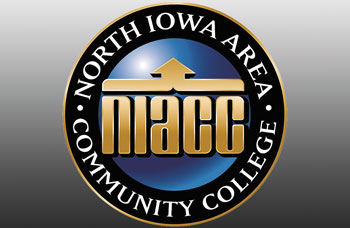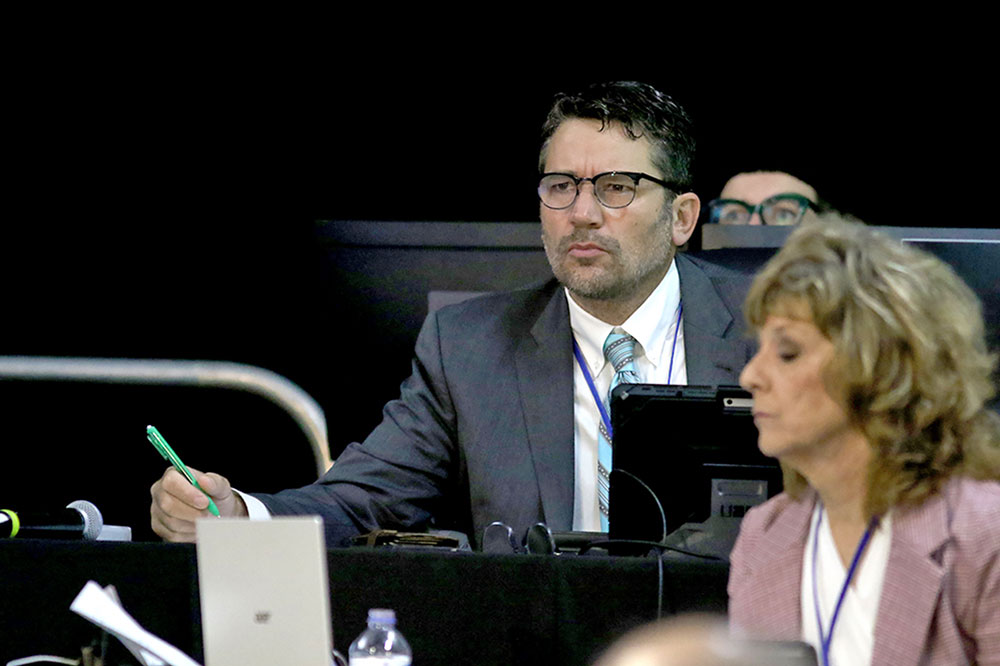Charles City Council explains how ‘illegal street’ will become trail extension
By Travis Fischer, tkfischer@charlescitypress.com
Discussion of the Charley Western Trail dominated the regular workshop session of the Charles City Council on Wednesday, Feb. 28.
The topic in question involved plans to expand the trail along what is currently 11th Avenue. The city has been working with Cedar River Railroad and the Charles City Railway Company to negotiate easement agreements that would allow it to replace 11th Avenue with the trail extension.
Currently, the Charley Western Trail ends on the north end of F Street, near 11th Avenue. The city has been working on a project that would extend the trail west to North Grand Avenue, and $228,000 in federal funding has already been secured to go toward the trail construction.
“Really, the only feasible way is to use that area on 11th Avenue and extend it to the west,” said City Engineer John Fallis.
During the easement process, it was revealed that a portion of 11th Avenue is not actually a city street at all. Specifically, there is no documentation for 11th Avenue between D Street and E Street.
“The origins of how it got there have been lost to time,” said Fallis, who speculated that the road was originally developed and used by the Hart-Parr tractor plant. “I don’t think it was ever meant to be a city street.”
According to City Attorney Brad Sloter, railroad companies are immune from adverse possession, which would normally allow a city to claim such a long established road. And while the railroad companies have made a rare exception to grant easements to facilitate the recreational trail, the street known as 11th Avenue would not be allowed under today’s standards.
“We do not have a legal right to it,” said Fallis.
While Fallis recommended moving forward with the conversion of 11th Avenue into an expansion of the recreational trail, others in the community were less agreeable to the idea.
“By shutting that portion down you’re going to create a hell of a problem for the city,” said Richard Vandeventer, who had previously interrupted a council meeting to express his opposition to the removal of the street.
Vandeventer returned with others in the area, concerned about how removing 11th Avenue would impact traffic and access to the area. In particular, Vandeventer said, the north side of Charles City, past the railroad tracks, would be vulnerable to a reduction in emergency service response times in the event that a train would block the rail crossing on either E Street or North Grand Avenue. Rather than using 11th Avenue to get to the next crossing, vehicles would need to turn around and backtrack to 9th Avenue to make the detour.
While the council and Vandeventer struggled to stay on topic, breaking off into tangents about stop sign enforcement, seniority of residency, and responsibility for mowing, it was ultimately explained that 11th Avenue is not a legal street and will not be whether the bike trail is expanded or not.
Speaking in favor of the recreation trail, Charley Western Trail Committee Co-chair Mark Melrose expressed his support for the expansion, citing it as necessary for the continued development of the trail.
“That section from F to the depot has to happen,” said Melrose. “The more people you get on that recreational trail, the better it’s going to be for nearly everybody in town.”
In other business, the council reviewed plans for the 2024 Tree Removal Project, the third and final phase of a large-scale plan to remove trees – most of them dead ash trees – from city rights-of-way. This plan will take out another 260 out of the city.
The council also discussed developing a plan that would allow property owners to receive a temporary waiver of the city’s utility disconnect requirements.
Currently, the city code requires property owners to cap water and sewer services at the main upon being disconnected from service. With this agreement, property owners can get a one-year waiver, providing flexibility to either reinstate services or demolish the property completely.
Engineer in Training Brian Sullivan recommended a flat deposit of $1,000 for the waiver, which would be returned upon either reinstatement or demolition, however council member Keith Starr suggested that the deposit be sufficient to cover the cost of the city capping services in the event the property owner doesn’t.
“I think we need to protect the city wherever we can,” said Starr.








Social Share